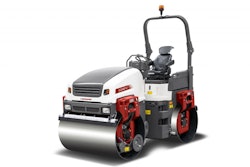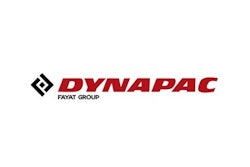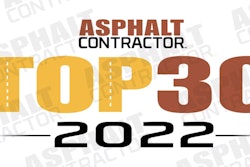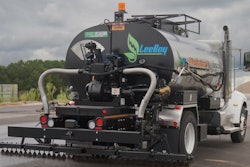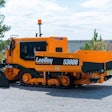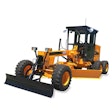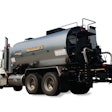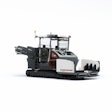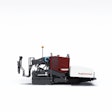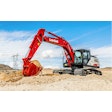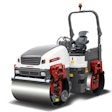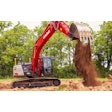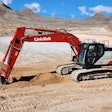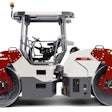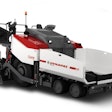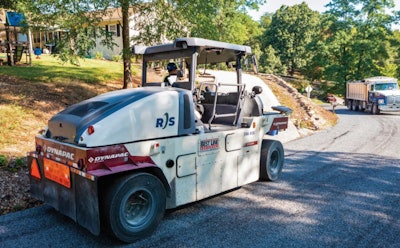
In 1929, Russell Standard was founded by Niles E. Russell in Pittsburgh. Over time, the company has grown and evolved into a robust paving and asphalt distribution company that provides pavement preservations, specialty applications, pothole repairs, and general paving services across multiple states. Recently, the firm purchased a Dynapac CP2100W pneumatic roller.
“When we decided to update our fleet, we shopped around with multiple manufacturers before choosing Dynapac,” explained Russell Standard’s Jason Sadler, superintendent of road construction, Fayetteville, Pa. “We worked closely with our local vendor (Best Line Equipment) and Dynapac to find a machine that would allow us to increase our productivity, meet compaction standards, and improve our fuel efficiency. The CP2100W roller checked all the boxes and has been a reliable machine for us.”
The Dynapac CP2100W pneumatic roller has an operating mass of approximately 20,834 pounds that can reach about 46,300 pounds with maximum ballast. It can travel up to 14 miles per hour and has a rolling width of 89 inches, which allows it to compact more ground at a higher speed than competitive machines.
“A wide and fast machine allows Russell Standard to get more square yardage down per day while saving them time and fuel with fewer passes,” explained an asphalt marketing specialist, at Best Line Equipment. “As a local vendor, our goal is to provide them with any support they need to maximize their uptime and productivity. So far, the machine has been reliable and required minimal service outside of routine maintenance.”
Historic chip-seal job
With a Dynapac CP2100W pneumatic roller, Russell Standard recently completed a double-chip-seal application followed by a fog seal along about 5 miles of a historic road in Gettysburg, Pa. In total, the company covered approximately 50,000 square feet.
“Chip sealing is a maintenance process similar to staining a deck,” explained Sadler. “Instead of waiting for the road to fall apart then milling and repaving it, we put a seal coat on the existing surface and effectively extend the life of the road without having to replace everything. Throughout the sealing process, the Dynapac roller compacts the stone down into the emulsion, a process referred to as seeding. The process causes the aggregate to rest on its flat side, creating a smooth barrier between traffic and the emulsion.”
Sadler continued, “Typically, we complete multiple jobs in townships that are near enough to each other that we don’t load our equipment on trailers. Owning a roller capable of moving 14 miles per hour allows us to get from one location to the next and start working faster than many of the competitive brands, whose machines only run 7 miles per hour. The timeliness and fuel efficiency of moving between jobs without a trailer allows us to take on more projects, increase our efficiency, and be more profitable.”
Safety and technology
In addition to efficiency, it’s important to have a machine that keeps the operator safe and comfortable. The roller’s cab has multiple mirrors and an ergonomic swivel seat, so the operator can control the machine from either side of the cab. The roller also features Dynapac’s air-on-the-run system, which allows the operator to easily adjust tire pressure and reach proper compaction levels.
“The air-on-the-run gives you more flexibility depending on what products you're putting down with the roller,” said Sadler. “I like the safety of the machine, the visibility from the operator station, and the side mirrors. It has a backup camera also. That's a good thing because the operator typically makes three passes on the roadway, and one pass is always backing up. When the seat swivels, the controls swivel, so the operator has a very good view. As far as operator care and operator comfort, the CP2100W is right up there at the top of the list.”
Video: YouTube
